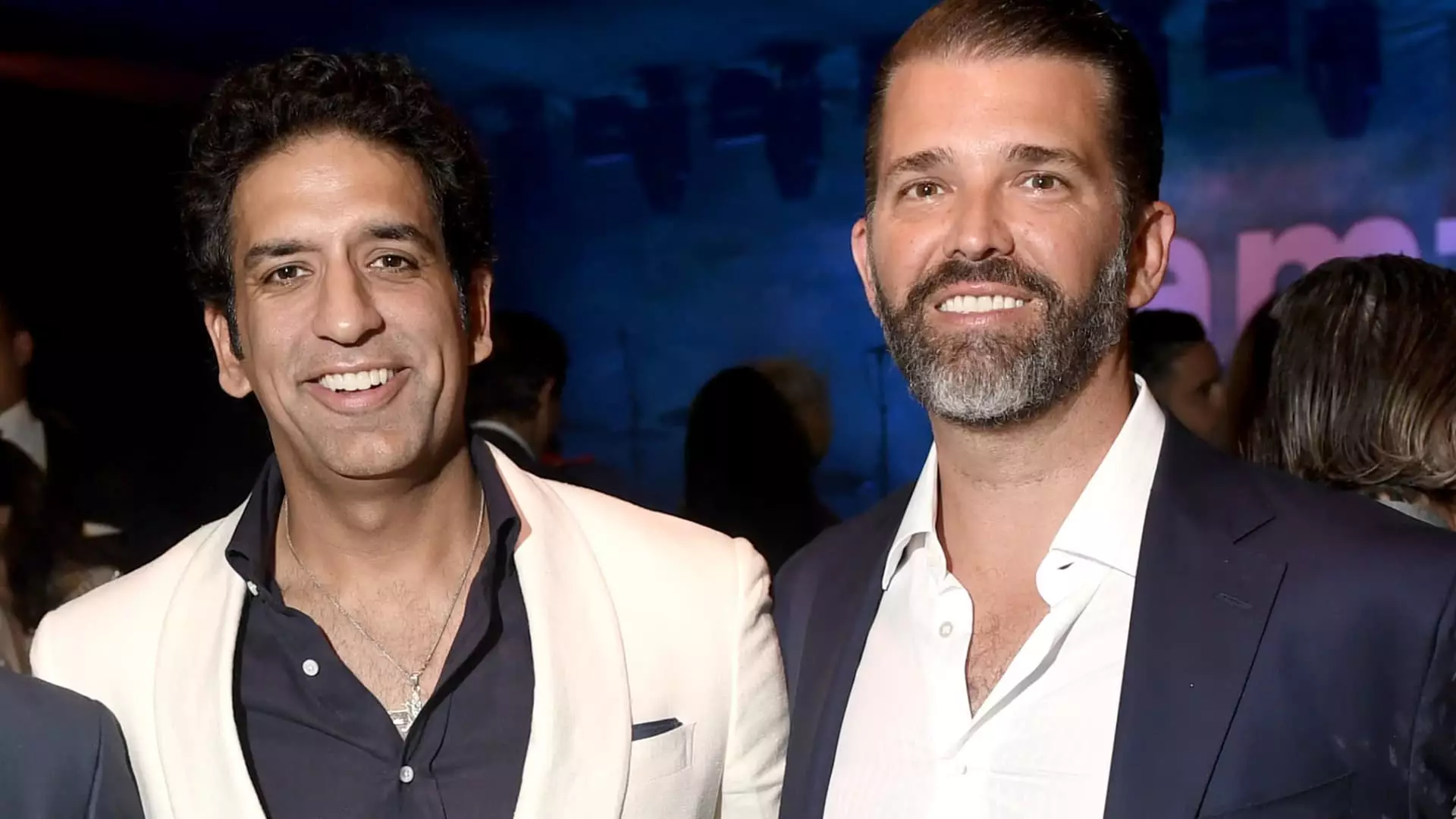In a political landscape that is increasingly polarized and divided, the emergence of the Executive Branch, a new private membership club co-founded by Donald Trump Jr., underscores a disconcerting trend: the unabashed promotion of exclusivity and elitism. With a staggering membership fee of $500,000 and an already established waiting list, this ultra-elite club is not just a social venue; it’s a statement of wealth, privilege, and power in Washington D.C. The very premise of such high entry fees serves to exclude the average citizen, reinforcing a systemic class divide that is troubling in a democracy.
The considerable sum required to join the Executive Branch sharply contrasts with the rates of other clubs that, while also exclusive, typically hover between $4,000 and $10,000. The fact that patrons of this new club will potentially belong to a tighter-knit and hyper-exclusive membership signifies an alarming shift toward creating enclaves of power that operate in isolation from the very populace they are meant to represent.
Political Networking at a Price
The launch of the Executive Branch featured notable political figures, including members from President Trump’s administration, lobbyists, and affluent CEOs, emphasizing the intertwining of wealth and political influence. By providing a physical space where power brokers can congregate, the club fosters environments that thrive on connection rather than accountability. Such networking doesn’t just raise ethical concerns; it lays the groundwork for policies that may benefit a few at the expense of many.
This exclusive setting extends the legacy of the Trump Organization’s previous ventures, such as the Trump International Hotel, which arguably served as a nexus for the same type of mingling among elites, often leading to problematic ethical implications. The resemblance signals a troubling potential for political decisions to be made behind closed doors, away from public scrutiny and input—an affront to democratic principles.
The Illusion of Community
The very essence of a club like the Executive Branch challenges the notion of community and shared values. In an era that demands greater societal cohesion, the development of exclusive hubs for the super-wealthy sends a contrary message. When membership requires not just financial affluence but also a careful vetting process aimed at excluding journalists and lobbyists, it becomes evident that transparency is not a priority. The rationale behind this selective inclusivity raises eyebrows; an air of secrecy breeds suspicion that decisions and alliances made here diverge from the public’s interest.
These walled gardens of elite clubs create an echo chamber where sources of information and perspectives are limited to those who can afford access. This is particularly disconcerting in a politically charged climate when open dialogue is essential for the health of democracy. Instead, the Executive Branch may inadvertently contribute to a narrow vision of policymaking informed primarily by the interests of its affluent members, rather than the diverse viewpoints of the public.
Ethical Shadows Looming Ahead
As with many ventures associated with the Trump brand, ethical implications loom large. The history of the Trump Organization, rife with controversy and allegations of self-dealing, casts a long shadow over the credibility of any new enterprise tied to Donald Trump Jr. Notably absent from the conversation surroundingexclusive clubs like the Executive Branch is the voice of those who stand to be most affected by the actions and policies of its influential members—namely, everyday citizens who cannot pay for admission to this sphere of power.
One must question whether this club represents a genuine effort at fostering community among influential figures or simply perpetuates an antiquated form of elitism that subtly reinforces inequality. If democracy is meant to serve the people as a whole, institutions that operate behind paid barriers sharply contradict that ideal. The revival of such clubs reflects a worrying trend where access to power is directly correlated to financial resources, skewing governance towards those with deep pockets rather than a representative populace.
In a society increasingly craving inclusivity and connectedness, the opening of the Executive Branch may very well signify a step backward, toward silos of privilege rather than bridging divides. The consequences of such a development can hardly be overstated; it is a poignant reminder of how democracy can be weakened—one exclusive club at a time.

